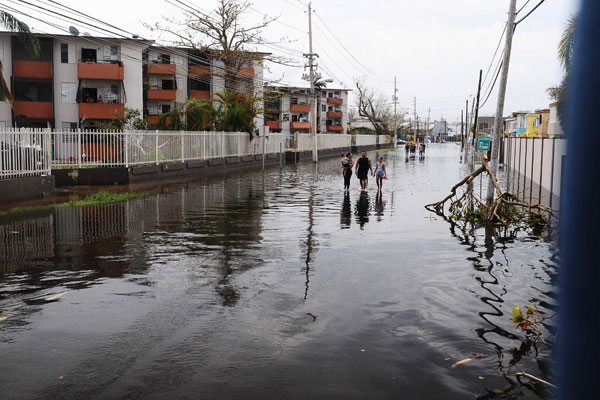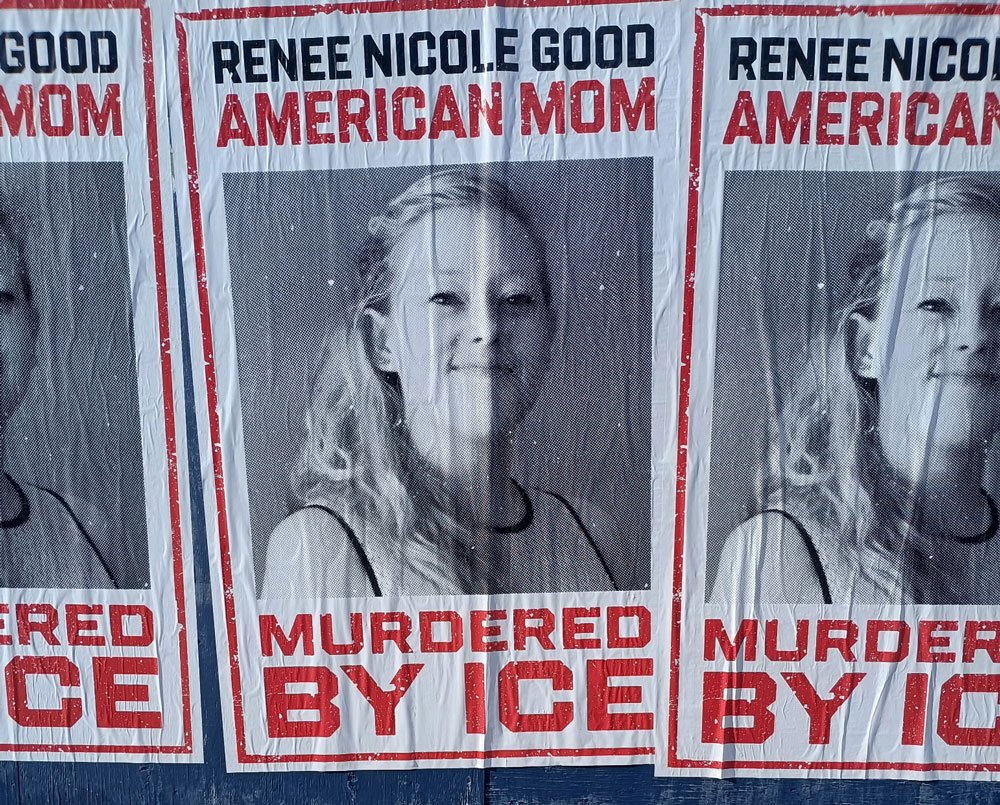
October 4, 2017; The Intercept
Don’t let anyone tell you activism doesn’t have impact. Last week, President Trump indicated that he wanted to cancel Puerto Rico’s debt and is considering the permanent suspension of the Jones Act—both demands made by activists, organizers, elected officials, and community-based organizations.
There is an additional demand that the US government provide money not just for emergency services, but for general operating expenses and rebuilding a resilient infrastructure. “Democrats are urging the White House and Congress to use the rebuilding of Puerto Rico after Hurricane Maria to address the US territory’s broader debt crisis.” Senator Chuck Schumer, the Senate’s Democratic leader, called for a fairer solution for Puerto Rico, and Representative Nancy Pelosi, the House counterpart, urged the Treasury Department to issue a short-term loan to aid in rebuilding. It is expected that the rebuilding effort will cost $95 billion, about 150 percent of Puerto Rico’s economy.
Though this will likely help the economic situation, it will not significantly alter the political one, which Puerto Ricans and many others have historically seen as colonial. The fiscal oversight board installed this year as part of the austerity program PROMESA will continue to lead the economic transition until the island maintains a balanced budget for four consecutive years, according to the board’s accounting standards. That board has only one Puerto Rican member. This likely means that privatization will continue to be a threat even after the debt resolution process. Kate Aronoff, writing for The Intercept, called this “the trade-off between at least some level of debt forgiveness and undemocratic austerity.”
But, not missing a beat, stateside organizers have rapidly moved from emergency response to policy demands. “VAMOS4PR, a coalition of labor, community, and civil rights groups, is planning rallies in 14 cities today calling for ‘immediate and sufficient aid to RELIEVE AND REBUILD Puerto Rico.’”
Investors are organizing to have any bailout be for them.
Cate Long, who leads a research service for Puerto Rico bondholders and wrote a recent report for Congress on the status of PROMESA, has been circulating a list of recommendations to lawmakers in Washington in Irma and Maria’s wake, calling for Congress to “consider a tax credit for US multinationals” and the “militarization of the island to provide short to medium [term] security.” The list further suggests that “Congress…proactively request that President Trump remove…and replace the [board] with an appointed administrator who has broad authority to execute contracts, coordinate with federal agencies and oversee reconstruction.”
Long also said she would be recommending to Congress that US multinationals operating in Puerto Rico be able to write down 100 percent of capital expenditures “required to rebuild after Maria or build new factories within a 2–3-year window.”
Sign up for our free newsletters
Subscribe to NPQ's newsletters to have our top stories delivered directly to your inbox.
By signing up, you agree to our privacy policy and terms of use, and to receive messages from NPQ and our partners.
Eric LeCompte is executive director of Jubilee USA, a coalition of religious, development, and advocacy groups that fights poverty by working on debt, tax, trade and transparency policies. Though they are now calling for the cancellation of Puerto Rico’s debt, Jubilee supported PROMESA in the lead-up to its passage this summer.
LeCompte says that Hurricane Maria and the “active pressure from Puerto Rican organizers there and in the diaspora” has created a climate for debt cancellation. He sees three options.
Beyond outright forgiveness, one idea that’s been popular even among some bondholders is to repackage any remaining debt into a bond that would only be repaid once Puerto Rico crosses a certain threshold of GDP growth. A less likely scenario—though one LeCompte advised to look out for, and Trump himself may have suggested—could see Congress pass a bail-out for bondholders, pouring federal funds into recouping their losses. Another recourse for creditors, he tells me, “is trying to get Congress to amend or change PROMESA legislation to disempower the bankruptcy process.”
The final decision does not lie with Trump, but with US District Court Judge Laura Taylor Swain, who is overseeing Puerto Rico’s bankruptcy case.
The 10-day Jones Act waiver that allowed non-US ships to deliver aid to Puerto Rico during this crisis expired Sunday. “But critics of the law say they plan to keep highlighting their issue and pushing for a longer waiver.” Republican Senators John McCain and Mike Lee introduced legislation to permanently exempt Puerto Rico from the Jones Act, noting that the “protectionist law…has driven up costs and crippled Puerto Rico’s economy.” On the other side, “defenders of the Jones Act argue that the law is necessary because it protects US jobs, shipbuilders and national security.” Though the bill has yet to be scheduled for floor time, as McCain requested, the bill has been put on the fast track, which allows it to bypass the normal committee process.
In the meantime, Puerto Ricans have begun to take refuge in the United States. Florida, the nation’s third-largest state and a critical one in Presidential elections, expects at least 100,000. “As US citizens, Puerto Ricans can register to vote in any state as soon as they establish residency.” Trump narrowly won Florida last year by a margin of 120,000 votes. The Washington Post’s Elise Tieback and Joel Achenbach write, “State and national politicians have taken notice of the post-Maria diaspora.” They note that Florida’s own Senator Marco Rubio, “a possible Trump challenger in 2020,” has called for more federal aid to Puerto Rico and “was one of the first mainland politicians to visit Puerto Rico after Maria hit last month.” Likewise, Florida Senator Bill Nelson and Governor Rick Scott, who are “running neck-and-neck…in a Senate poll released in August by Florida Atlantic University,” have both chimed in on the US response to the island’s crisis. Vice President Pence visited Florida’s Puerto Rican community and traveled to the island last week.
Florida’s Puerto Rican community has six representatives in the state legislature and the US House—three Republicans and three Democrats. Anthony Suarez, the first Puerto Rican member of the Florida House says, “All politics is about motivation, and at this point, the Hispanic community here is extremely motivated against Trump.”—Cyndi Suarez












